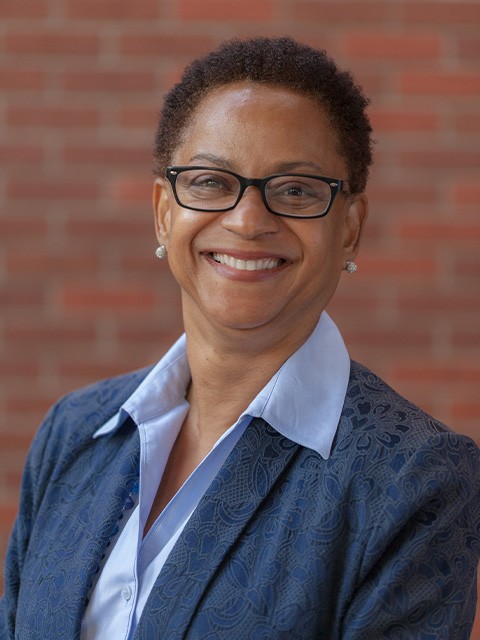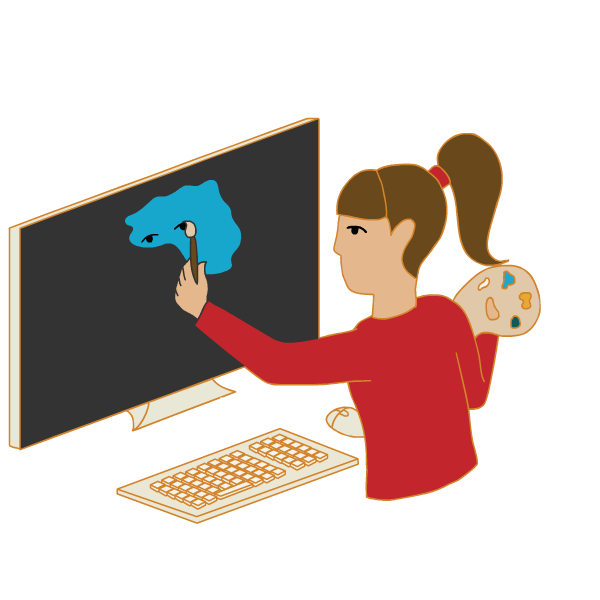The path to inclusivity cannot be traveled alone. It takes all of us.

The death of George Floyd in May 2020 sparked outrage and concern in communities everywhere. The Oregon State University community rededicated our efforts to strengthen the way we fight systemic racism — on campus and beyond.
The Moving Forward Together Initiative was created to achieve the vision of an antiracist institution, and to empower and elevate all students, staff and faculty of color, particularly those from Black and Indigenous communities who are historically underrepresented at Oregon State.
Developed under the guidance of the President and Provost’s Leadership Council on Equity, Inclusion and Social Justice, the initiative includes action items in eight categories — staff and faculty, public safety, immigration, teaching and learning, student services, leadership, marketing and communications and bias response — to build a more equitable university.
Because the United States has a deep-rooted history of marginalization, it’s more important than ever to begin to change the tide. That involves difficult conversations, education and empowerment to ensure that every member of our community knows they are seen, heard and welcomed at OSU. While work on the initiative is just beginning, progress is already being made in multiple areas:
Signature education programs
The Office of Institutional Diversity supports two education programs centered around social justice. Offered every fall and spring term, Leading Change for Diversity, Equity and Inclusion is a 24-hour, research-based curriculum that aims to build capacity among academic and administrative leaders to facilitate organizational change. The Dialogue Facilitation Lab, which began in 2018, is designed to prepare faculty, staff, post-docs and graduate students to start critical conversations in learning and working environments. It is offered every winter and summer term.
Retention of Black staff and faculty
The President’s Commission on the Status of Black Faculty and Staff Affairs, led by Terrance Harris, director of the Lonnie B. Harris Black Cultural Center, and Tenisha Tevis, assistant professor in the College of Education, was recently developed to ensure Black-identifying Oregon State employees have access to personal and academic support, advancement opportunities, mentoring and professional development.
Strengthening partnerships with tribal communities
Memorandums of understanding are being reviewed and revised to ensure they meet the needs of Indigenous people and create more opportunities for Oregon State and local tribal communities to work together. In addition, the Tribal Communities Initiative — a partnership between Oregon State Ecampus and the Office of Institutional Diversity —continues to help Indigenous students navigate college life. By assigning each student to an Ecampus success coach, they are able to set goals, maintain work-life balance and build connections with fellow Indigenous students.
Public safety
The university is considering a public safety model in which 911 calls can be routed to mental health professionals rather than armed police where appropriate. This approach is modeled on CAHOOTS, Crisis Assistance Helping Out On The Streets, a mental health intervention program launched in Eugene in 1989 that is now being replicated nationwide.

Vice President and Chief Diversity Officer
Immigration protection
Oregon State’s Division of Student Affairs has collaborated with the OSU Foundation to increase funding for the Dreaming Beyond Borders Resource Center, where undocumented students and students from mixed-status families can gain access to student advocacy groups, academic, legal and health resources and other services.
Bias response
Oregon State’s Bias Response Team reviews incident reports regarding discrimination toward a person’s background or identity, and it provides campus resources that can support those who are negatively affected. To better serve Black and Indigenous communities, the Bias Response Team is gathering feedback to determine how it can better respond to issues related to racism on campus.
All in for making change
Charlene Alexander, Oregon State vice president and chief diversity officer, says none of this work would be possible without the willingness and participation of Oregon State departments and leadership.
“We have multiple partners who are doing this work every day, on the ground. Whether it’s in housing and residential life, in all of our cultural centers in Diversity and Cultural Engagement, the Educational Opportunities Program, the OSU Alumni Association or the OSU Foundation,” she says. “They are the real heroes behind this effort.”
Related Stories
 Video file
Video file Video file
Video file Video file
Video file Video file
Video file